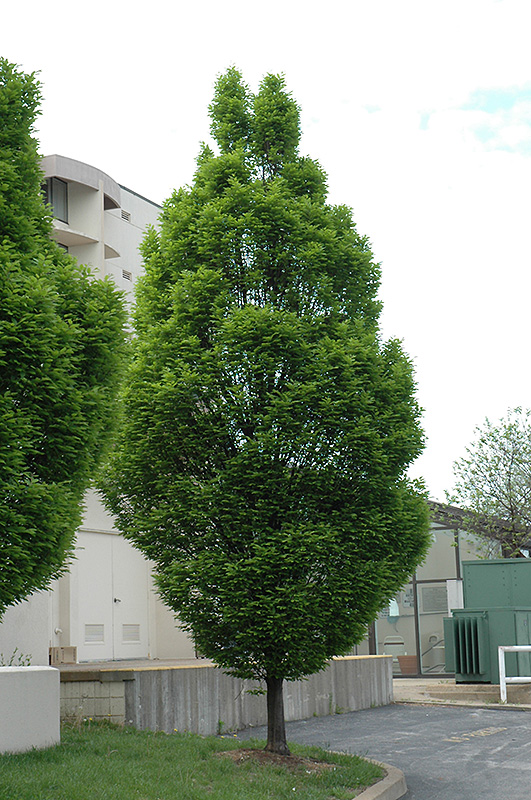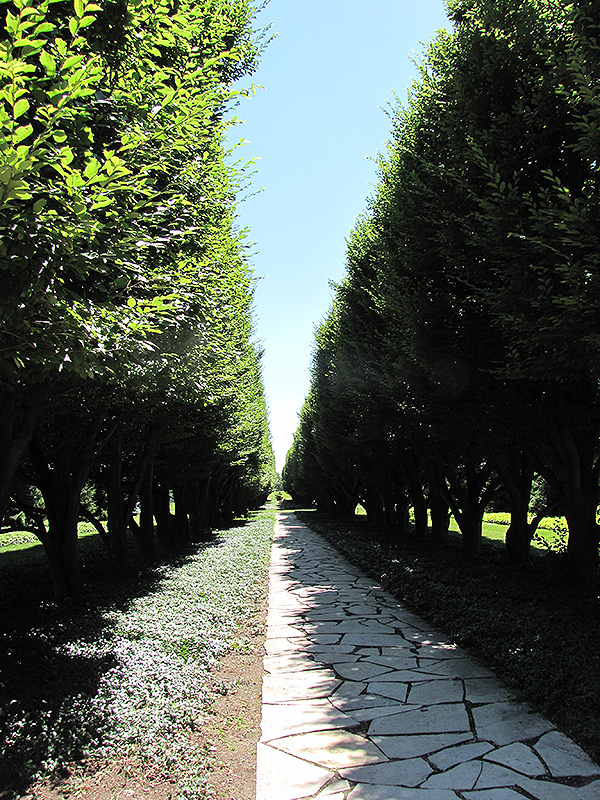Get ready to ignite your excitement and cultivate unforgettable memories
with Wallace's Garden Center Events! We're thrilled to invite you to a world of
enchanting experiences, where every gathering is a celebration of nature, community, and pure fun.
Plant Finder
Pyramidal European Hornbeam
Carpinus betulus 'Fastigiata'
Height: 40 feet
Spread: 25 feet
Sunlight:
![]()
![]()
Hardiness Zone: 5
Other Names: Common Hornbeam
Description:
A tightly pyramidal tree with a strong form; best used in the landscape as an accent, for articulation, or as a tall hedge or alee tree; excellent landscaping choice for special applications
Ornamental Features
Pyramidal European Hornbeam is primarily valued in the landscape for its rigidly columnar form. It has forest green deciduous foliage. The pointy leaves turn yellow in fall. The smooth gray bark adds an interesting dimension to the landscape.
Landscape Attributes
Pyramidal European Hornbeam is a dense deciduous tree with a narrowly upright and columnar growth habit. Its relatively fine texture sets it apart from other landscape plants with less refined foliage.
This is a relatively low maintenance tree, and should not require much pruning, except when necessary, such as to remove dieback. It has no significant negative characteristics.
Pyramidal European Hornbeam is recommended for the following landscape applications;
- Accent
- Shade
- Vertical Accent
- Mass Planting
- Hedges/Screening
Planting & Growing
Pyramidal European Hornbeam will grow to be about 40 feet tall at maturity, with a spread of 25 feet. It has a low canopy with a typical clearance of 3 feet from the ground, and should not be planted underneath power lines. It grows at a slow rate, and under ideal conditions can be expected to live to a ripe old age of 120 years or more; think of this as a heritage tree for future generations!
This tree does best in full sun to partial shade. It prefers to grow in average to moist conditions, and shouldn't be allowed to dry out. It is not particular as to soil type or pH. It is highly tolerant of urban pollution and will even thrive in inner city environments. This is a selected variety of a species not originally from North America.



